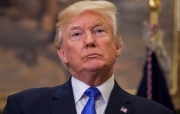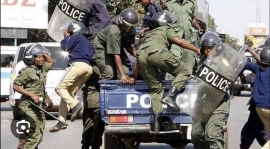
Trump slams travel ban on 12 countries
CITIZENS COMPASS– President of the United States of America, Donald Trump, has signed a travel ban against 12 countries.
The countries have been restricted entry into the USA.
The ban affects nationals from Afghanistan, Myanmar (Burma), Chad, the Republic of the Congo and Equatorial Guinea.
Others are Eritrea, Haiti, Iran, Libya, Somalia, Sudan, and Yemen.
The ban partially limits seven other countries aiming to improve security and address vetting shortcomings.
The proclamation, signed on June 4, will take effect on June 9. The administration explained the ban was due to poor vetting, high visa overstay rates, and inadequate information sharing from these countries. Nigeria remarkably was not found particularly wanting in these critical areas despite the increasing presence of Nigerian communities across the US.
Partial restrictions apply to travelers from Burundi, Cuba, Laos, Sierra Leone, Togo, Turkmenistan, and Venezuela. However, exemptions exist for lawful permanent residents, holders of valid visas, and individuals whose entry is deemed in the U.S. national interest.
The decision was accelerated following an antisemitic attack in Boulder, Colorado. A White House official said the event sped up the finalization of the proclamation, which had been under consideration beforehand. Deputy press secretary Abigail Jackson stated, “President Trump is fulfilling his promise to protect Americans from dangerous foreign actors that want to come to our country and cause us harm.”
She added, “These commonsense restrictions are country-specific and include places that lack proper vetting, exhibit high visa overstay rates, or fail to share identity and threat information.”
Trump also warned the list might grow if new threats arise or if countries fail to improve their vetting systems. He said, “The list is subject to revision based on whether material improvements are made. And likewise new countries can be added as threats emerge around the world, but we will not allow people to enter our country who wish to do us harm and nothing will stop us from keeping America safe.”
This new proclamation follows a similar travel ban from Trump’s first term, which restricted seven majority-Muslim countries but was later reversed by President Joe Biden in 2021. Including Afghanistan in the current ban raised concerns, especially for Afghans who assisted U.S. forces during America’s two-decade military presence. The administration had already paused the refugee admissions program and cut foreign aid for Afghan Special Immigrant Visa holders.
Refugee advocates have voiced worries over the ban’s impact. Shawn Vandiver, founder of #AfghanEvac, said, “It disproportionately affects families and individuals seeking lawful entry into the US.” He added, “The proclamation is a strategic move, not a response to an immediate threat.”
Several affected governments also criticized the restrictions. Venezuela’s Minister of Interior, Justice and Peace, Diosdado Cabello, said on national television, “If you’re really that foolish, then go to the United States.” Abby Maxman, President and CEO of Oxfam America, condemned the ban as a “chilling return to policies of fear, discrimination, and division” that forces vulnerable people to remain in dangerous conditions.
In a related move, the Trump administration revoked Harvard University’s authorization to enroll international students on May 22, forcing thousands of foreign students to transfer or risk losing their legal status. Homeland Security Secretary Kristi Noem cited concerns about Harvard’s alleged ties to the Chinese Communist Party and accusations of fostering antisemitism and violence.







